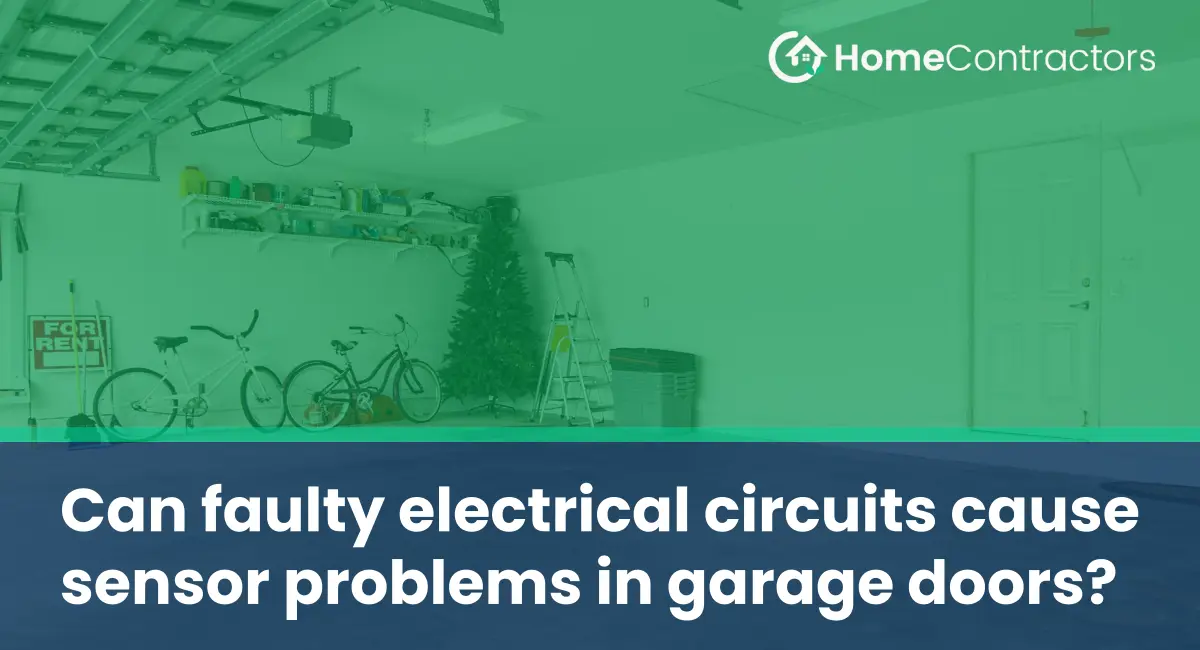Garage doors are an essential part of our daily lives, providing security and convenience. However, like any other mechanical device, garage doors can encounter issues from time to time. One common problem faced by homeowners is sensor malfunctions. In this article, we will explore whether faulty electrical circuits can be the root cause of sensor problems in garage doors.
Understanding Garage Door Sensors:
Garage doors are equipped with sensors as a safety mechanism to prevent accidents and ensure smooth operation. These sensors detect any obstructions or obstacles in the door’s pathway while it is closing, prompting the system to stop or reverse its motion. Typically, garage doors use two types of sensors known as the photo-eye sensors and the pressure sensors.
Photo-eye Sensors and Electrical Circuits:
Photo-eye sensors, also called photocells, are the most commonly used sensors in garage door systems. They work by emitting an invisible beam of infrared light across the opening of the doorway. If an object interrupts the beam, the sensors communicate, and the door either stops or reverses its motion.
Faulty Electrical Circuits and Photo-eye Sensor Issues:
If your garage door’s photo-eye sensors are experiencing problems, it is unlikely that the faulty electrical circuits are the direct cause. Generally, sensor issues arise from misalignment, dirt or debris blocking the lens, or a malfunctioning sensor itself. However, electrical issues within the system can indirectly affect the proper functioning of the sensors.
Effects of Faulty Electrical Circuits on Photo-eye Sensors:
While the electrical circuits themselves may not cause the sensor issues directly, they can create circumstances where sensor problems become more likely. Some potential effects of faulty electrical circuits on photo-eye sensors are:
- Voltage Fluctuations: Inconsistent or fluctuating electrical power can cause the garage door sensors to behave erratically. For example, if the sensors are not receiving a consistent power supply, they may fail to function correctly, leading to false detections or failure to detect objects in the door’s path.
- Wiring Problems: Faulty electrical circuits can result in loose or damaged wiring connections, leading to poor electric conductivity. Damaged wiring may disrupt the flow of power to the photo-eye sensors, causing them to malfunction.
- Interference from Electromagnetic Devices: Faulty electrical circuits can generate electromagnetic interference (EMI) within the garage door system. These interferences can disrupt the photo-eye sensors’ infrared beam, leading to inaccurate readings and subsequent malfunctioning.
Preventing Sensor Problems Due to Faulty Electrical Circuits:
To ensure that electrical circuit issues do not bring about sensor problems in your garage door, follow these preventive measures:
- Regular Inspections: Schedule periodic inspections of your garage door system, focusing not only on the sensors but also on the entire electrical setup. Look for loose wires, damaged connections, or signs of voltage fluctuations.
- Proper Grounding: Ensure that your garage door system is properly grounded. This essential safety measure helps prevent electrical surges and minimizes the risk of electrical circuit issues affecting the sensors.
- Professional Maintenance: Regularly engage professional garage door technicians to perform maintenance on your garage door system. They have the necessary expertise to identify and rectify potential electrical circuit problems that could indirectly impact the sensors.
While faulty electrical circuits may not be the direct cause of sensor problems in garage doors, they can indirectly contribute to malfunctions. Voltage fluctuations, wiring problems, and interference from electromagnetic devices can all affect the efficient functioning of the sensors. Regular inspections, proper grounding, and professional maintenance are crucial to prevent electrical circuit issues from causing sensor problems in garage doors. By prioritizing these preventive measures, homeowners can enhance the safety and reliability of their garage door systems.
